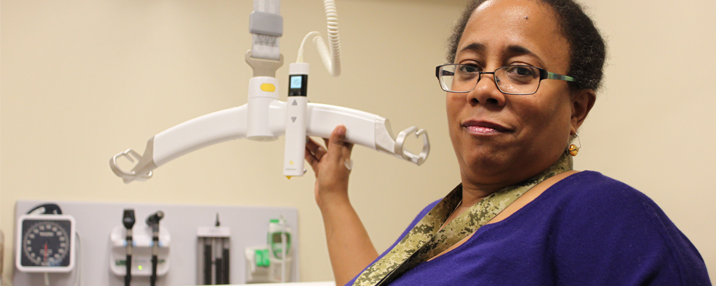CDS helps individuals with disabilities reach their potential by improving their access to quality care, empowering them to navigate their own care, training individuals supporting people with autism, surveying community members about their satisfaction with services, and helping them prepare for and survive emergencies.
Emergency Preparedness
Generators for the home. A sensible evacuation route. Safety protocols responders can follow. These and a thousand other items could spell the difference between security and exposure to danger.
CDS collaborates with stakeholders to develop and promote inclusive emergency preparedness that addresses the unique needs of people with disabilities and chronic conditions.
We provide trainings and presentations on their needs to health department staff, service providers and first responders. We give first responders helpful tools, tips, and resources for helping people with disabilities. And we help people with disabilities and their families formulate their own emergency plans and emergency kits.
Check out our allreadyde.org website to see how in emergencies it can help health professionals, first responders, educators and the public know how to appropriately accommodate the needs of people with disabilities and chronic conditions.
Questions? Contact Pat Heineman.
Health Disparities
Compared to their counterparts without disabilities, adults with disabilities are more likely to delay seeing a doctor due to cost, more likely to be obese, more likely to smoke, and more likely to experience chronic conditions of diabetes, coronary heart disease and depression. Compared to their counterparts without disabilities, youth with disabilities also face challenges. For example, they’re more likely to have contemplated suicide.
In 2015, CDS and the Delaware Department of Health and Social Services (DHSS) led a community assessment that detailed those and other health disparities across the lifespan, and convened community members who produced a strategic Plan to Achieve Health Equity for Delawareans with Disabilities. Its recommendations have begun to be implemented, starting with DHSS drafting and adopting a new inclusion policy.
With funding from Delaware Developmental Disabilities Council, CDS created the My Emergency Care Plan (MECP). The MECP is a planning tool designed for individuals with disabilities and their families to use when going to a hospital, an emergency room or clinical setting.
Consisting of two sections, the Personal Profile and Medical Profile, this personal planning document was developed to promote self-determinations and independence and highlights the strengths, needs and characteristics of an individual with disability that emergency room staff may not think to consider.
Review the instructions for the MECP.
Download a fillable MECP for free.
Download a printable MECP for free.
Developmental Monitoring and Screening
Early identification and intervention for children with and at risk for disabilities is linked with improved outcomes for children and their families (Glascoe, 2000). Yet concerns remain that at-risk children are not being adequately identified so they may receive critical early intervention services (Rosenberg et al., 2008).
In partnership with the Delaware Department of Education Office of Early Learning, CDS is leading a CDC- and AUCD-funded initiative to promote parent-led developmental monitoring and screening in Delaware.
CDS is the home of Delaware’s Learn the Signs. Act Early. Ambassador, who is collaborating with community stakeholders to lead a series of family and provider workshops designed to familiarize participants with the state’s early identification system and importance of regular developmental screening.
Oral Health
Although dental care is critical to overall health, Delawareans with disabilities have more difficulty receiving it than their counterparts without disabilities – in part because Delaware does not provide Medicaid dental coverage to adults with disabilities who are older than 21.
To improve access, CDS is collaborating with the Bureau of Oral Health and Dental Services. CDS conducted a dental care survey of adults with disabilities and parents of individuals ages 6 to 49 with disabilities to determine their dental care needs. And it administered a survey of dentists to determine their current capacity to address oral health needs of Delawareans with disabilities. The findings of these surveys guided the development of cultural competency trainings for dental professionals and could facilitate efforts to expand Medicaid coverage.

